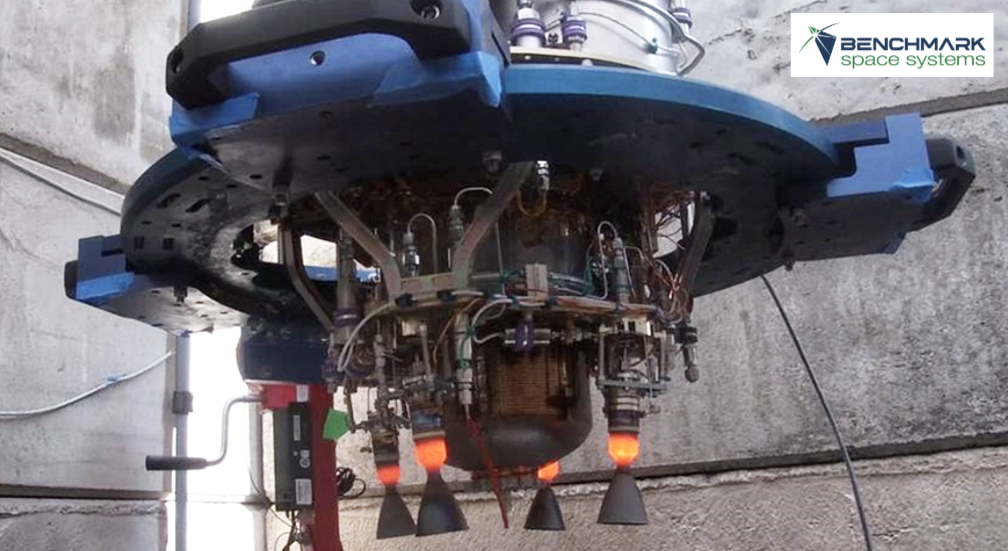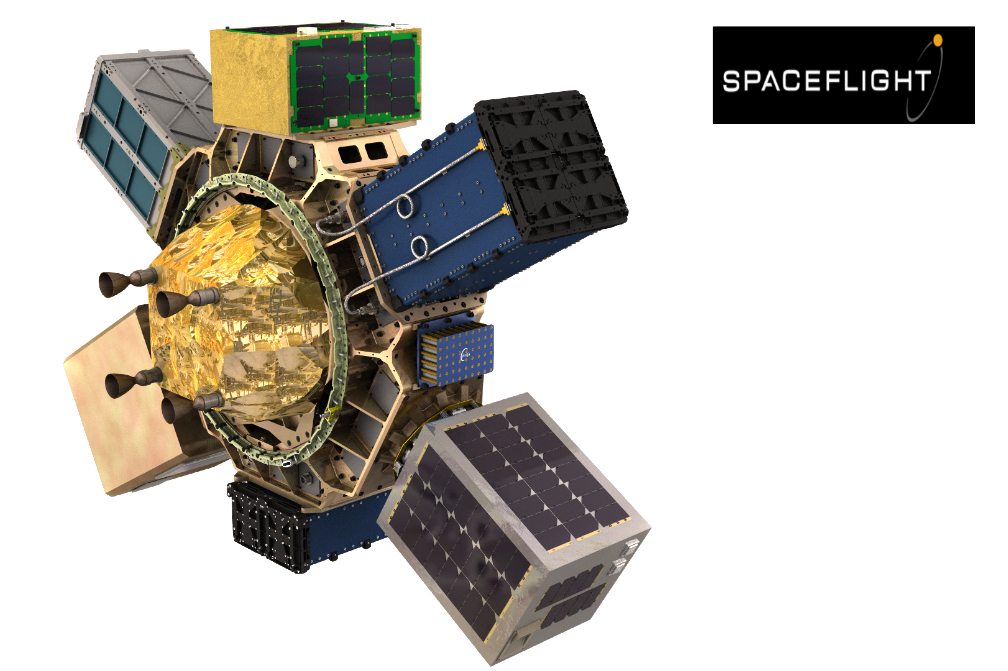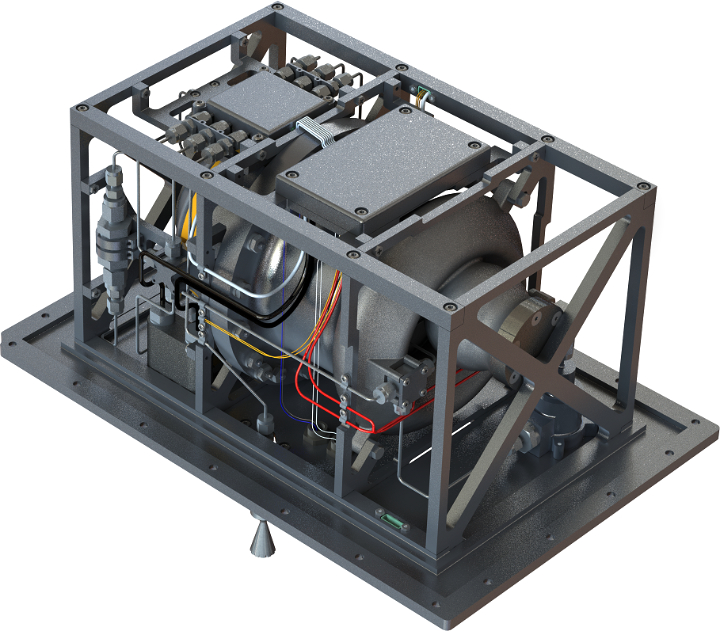
With milestone hot fire engine tests of its Halcyon Avant non-toxic chemical propulsion system completed at its Pleasanton, California, facility, Benchmark Space Systems‘ highly-anticipated system has been integrated into Spaceflight Inc.’s first Sherpa-LTC orbital transfer vehicle (OTV).

The propulsive OTV is set for launch on the SpaceX Transporter 3 mission that is scheduled for liftoff on January 13th from Cape Canaveral. Spaceflight’s historic SXRS-6 mission is set to deliver 13 payloads on the company’s first multi-destination rideshare mission.
Spaceflight is the first to use Benchmark’s Halcyon Avant green, bipropellant system, which boasts a 25% increase in fuel efficiency over state-of-the-art green monopropellants, using low-cost and readily available propellants. Spaceflight designed Sherpa-LTC to offer rideshare customers a fast on-orbit transportation option. Benchmark’s Halcyon Avant green bipropellant system enables satellites to reach their desired orbits quickly.

Benchmark’s Halcyon High-test peroxide (HTP)-based monopropellant system has successfully performed recent mission-critical maneuvers and will continue to drive government and commercial missions across three satellites as part of the Halcyon heritage campaign that reached orbit on Transporter 2. The Halcyon Avant system uses many common components from its monopropellant predecessor, with the added benefit of a post-catalyst fuel-injection feature that provides nearly 100% performance improvement.
The Benchmark team is already working on the second Sherpa LTC propulsion system scheduled for a Q2 delivery to Spaceflight, as well as smaller scaled Halcyon Avant systems for commercial and government smallsat missions, representing several system configurations that are scheduled to be in space before 2022 ends.
In its fifth year, Benchmark Space Systems is projecting 4x y-o-y revenue growth, expanding its product and service offerings, and scaling production capacity to meet demand and lead exciting new opportunities in space. The company is developing and delivering groundbreaking solutions that will not only support sustainability of LEO, GEO and beyond, but maximize the value of on-orbit assets through extended revenue generation and added capabilities.
“Benchmark’s innovative high-thrust system will play an important role in our first multi-destination rideshare mission,” said Phil Bracken, Spaceflight’s VP of Engineering. “We intentionally designed our Sherpa program to be modular so we could utilize best-of-class propulsion systems to meet our customers’ specific launch needs. Our partners play an important role in helping us get our customers exactly where they need to be so they can achieve their mission objectives.”
“The collaborative partnership between Spaceflight and Benchmark played a big part in the effective co-development of our first OTV-specific system, poised to deliver on the evolving needs of the Sherpa-LTC product family,” said Ryan McDevitt, Benchmark Space Systems CEO. “Benchmark’s innovative bipropellant system and Spaceflight’s spacecraft design and operational depth and experience capable of delivering Sherpa payloads on orbit with unmatched speed and precision. We are thrilled with the successful hot fire tests and engine integration aboard the first Sherpa-LTC, as we ready for a historic rideshare that opens the door to more access to space.”
Benchmark’s scalable, launch vehicle agnostic propulsion product and services suite supports a broad spectrum of spacecraft – from 1U cubesats through ESPA-class (1-500kg) satellites, lunar landers, spent launcher stages, and orbital transfer vehicles (OTVs), offering far safer and faster rideshare options than electric propulsion (EP) systems, which can take months to complete their trips to orbit.
